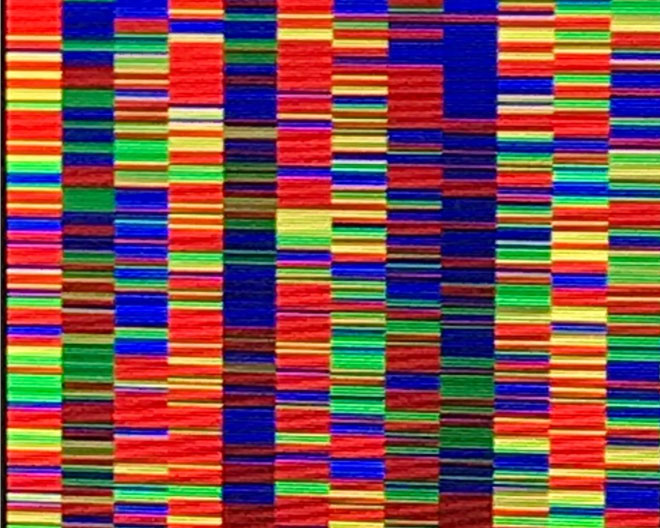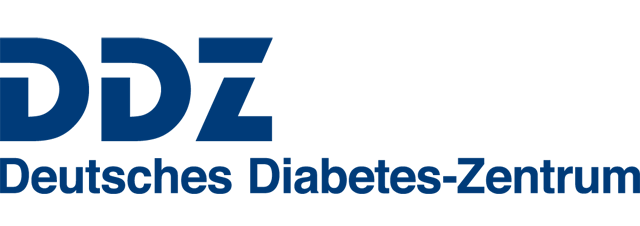
Metabolische Risikofaktoren auf genetischer Ebene
Metabolische Risikofaktoren, wie z.B. arterielle Hypertonie, Adipositas, Diabetes mellitus Typ 2 bzw. Glukoseintoleranz und Störungen des Fettstoffwechsels sind multifaktorielle polygene Erkrankungen, die kumuliert auftreten können. Die Verbindung für dieses klinische „Clustering“ von Risikofaktoren liegt auf genetischer Ebene, wobei die Pathogenese solcher multifaktoriellen Erkrankungen in Abhängigkeit der individuellen genetischen Prädisposition durch multiple Umweltfaktoren, gemeinhin Lifestyle genannt, direkt beeinflusst wird. Genetik und "Lifestyle-Interaktion" können durch Veränderungen in der kurz-, mittel- und langfristigen Genregulation als direkte Reaktion auf einen physiologischen Reiz, im Sinne eines physiologischen Gedächtnisses oder gar einer physiologischen Vererbung, bedingt sein.
Die Integration der physiologischen Daten eines Phänotyps mit dem zugrundeliegenden Genotyp und dessen spezifische Reaktion auf Umwelteinflüsse betrachtet man als Systembiologie und ist wesentlicher Inhalt der translationalen Medizin. Noch ist nicht geklärt, ob die zahlreichen relevanten Gen-Loki etwa gleiche Bedeutung haben, oder ob es dominierende Gen-Loki gibt. Ein etablierter Ansatz bei polygenen multifaktoriellen Erkrankungen ist, Defekte identifizierter Signalstörungen bei genetisch definierten Patienten zu charakterisieren, um dann anschließend die Rolle dieser neu identifizierten Gen-Loki bei häufigen Manifestationsformen zu definieren.
Schwerpunkte
- Untersuchung molekularer Vorgänge in der Entwicklung und der Progression polygener Erkrankungen sowie deren Veränderung durch Umwelteinflüsse und Nutzbarmachung genetischer Analysen als Teil des Forschungsschwerpunktes
- Untersuchung bekannter Target-Gene sowie die Identifizierung und anschließende Validierung neuer Kandidaten-Gene, die mit z.B. Adipositas, arterieller Hypertonie, Diabetes mellitus Typ 2 bzw. Glukoseintoleranz und Störungen des Fettstoffwechsels assoziiert sind
- Die Arbeitsgruppe führt zudem im Rahmen von Kooperationen DNA- (Sequenzierung, Genotypisierung) und Expressions-Analysen (Transkriptomanalysen, Methylierung) durch
Team
Ausgewählte Publikationen
- Nikolic A, Fahlbusch P, Riffelmann N-K, Wahlers N, Jacob S, Hartwig S, Kettel U, Schiller M, Dille M, Al-Hasani H, Kotzka J, Knebel B 2024. Chronic stress alters hepatic metabolism and thermodynamic respiratory efficiency affecting epigenetics in C57BL/6 mice. iScience. 27. https://doi.org/10.1016/j.isci.2024.109276
- Nikolic A, Fahlbusch P, Wahlers N, Riffelmann N-K, Jacob S, Hartwig S, Kettel U, Dille M, Al-Hasani H, Kotzka J, Knebel B 2023. Chronic stress targets mitochondrial respiratory efficiency in the skeletal muscle of C57BL/6 mice. Cell Mol Life Sci. 80. https://doi.org/10.1007/s00018-023-04761-4
- Fahlbusch P, Nikolic A, Hartwig S, Jacob S, Kettel U, Köllmer C, Al-Hasani H, Lehr S, Müller-Wieland D, Knebel B, Kotzka J 2022. Adaptation of Oxidative Phosphorylation Machinery Compensates for Hepatic Lipotoxicity in Early Stages of MAFLD. Int J Mol Sci. 23. https://doi.org/10.3390/ijms23126873
- Dille M, Nikolic A, Wahlers N, Fahlbusch P, Jacob S, Hartwig S, Lehr S, Kabra D, Klymenko O, Al-Hasani H, Kotzka J, Knebel B 2022. Long-term adjustment of hepatic lipid metabolism after chronic stress and the role of FGF21. BBA Molecular Basis of Disease. 1868. https://doi.org/10.1016/j.bbadis.2021.166286
- Fahlbusch P, Knebel B, Hörbelt T, Barbosa DM, Nikolic A, Jacob S, Al-Hasani H, Van de Velde F, Van Nieuwenhove Y, Müller-Wieland D, Lapauw B, Ouwens DM, Kotzka J 2020. Physiological Disturbance in Fatty Liver Energy Metabolism Converges on IGFBP2 Abundance and Regulation in Mice and Men. Int J Mol Sci. 21. https://doi.org/10.3390/ijms21114144
- Barbosa DM, Fahlbusch P, Herzfeld de Wiza D, Jacob S, Kettel U, Al-Hasani H, Krüger M, Ouwens DM, Hartwig S, Lehr S, Kotzka J, Knebel B 2020. Rhein, a novel Histone Deacetylase (HDAC) inhibitor with antifibrotic potency in human myocardial fibrosis. Sci Rep. 10. https://doi.org/10.1038/s41598-020-61886-3
- Hörbelt T, Knebel B, Fahlbusch P, Barbosa D, de Wiza DH, Van de Velde F, Van Nieuwenhove Y, Lapauw B, Thoresen GH, Al-Hasani H, Müller-Wieland D, Ouwens DM, Kotzka J 2019. The adipokine sFRP4 induces insulin resistance and lipogenesis in the liver. BBA Molecular Basis of Disease. 1865: 2671-2684. https://doi.org/10.1016/j.bbadis.2019.07.008
- Knebel B, Fahlbusch P, Poschmann G, Dille M, Wahlers N, Stühler K, Hartwig S, Lehr S, Schiller M, Jacob S, Kettel U, Müller-Wieland D, Kotzka J 2019. Adipokinome Signatures in Obese Mouse Models Reflect Adipose Tissue Health and Are Associated with Serum Lipid Composition. Int J Mol Sci. 20. https://doi.org/10.3390/ijms20102559
- Knebel B, Fahlbusch P, Dille M, Wahlers N, Hartwig S, Jacob S, Kettel U, Schiller M, Herebian D, Koellmer C, Lehr S, Müller-Wieland D, Kotzka J 2019. Fatty Liver Due to Increased de novo Lipogenesis: Alterations in the Hepatic Peroxisomal Proteome. Front Cell Dev Biol. 7. https://doi.org/10.3389/fcell.2019.00248
- Goeddeke S, Knebel B, Fahlbusch P, Hörbelt T, Poschmann G, Van de Velde F, Benninghoff T, Al-Hasani H, Jacob S, Van Niuwenhove Y, Lapauw B, Lehr S, Ouwens DM, Kotzka J 2018. CDH13 abundance interferes with adipocyte differentiation and is a novel biomarker for adipose tissue health. Int J Obes. 42: 1039-1050. https://doi.org/10.1038/s41366-018-0022-4
- Engelowski E, Schneider A, Franke M, Xu H, Clemen R, Lang A, Baran P, Binsch C, Knebel B, Al-Hasani H, Moll JM, Floß DM, Lang PA, Scheller J 2018. Synthetic cytokine receptors transmit biological signals using artificial ligands. Nat Commun. 9. https://doi.org/10.1038/s41467-018-04454-8
- Knebel B, Hartwig S, Jacob S, Kettel U, Schiller M, Passlack W, Koellmer C, Lehr S, Müller-Wieland D., Kotzka J 2018. Inactivation of SREBP-1a phosphorylation prevents fatty liver disease in mice: identification of related signaling pathways by gene expression profiles in liver and proteomes of peroxisomes. Int J Mol Sci. 19. https://doi.org/10.3390/ijms19040980
- Jelenik T, Flögel U, Álvarez-Hernández E, Scheiber D, Zweck E, Ding Z, Rothe M, Mastrototaro L, Kohlhaas V, Kotzka J, Knebel B, Müller-Wieland D, Moellendorf S, Gödecke A, Kelm M, Westenfeld R, Roden M, Szendroedi J 2018. Insulin Resistance and Vulnerability to Cardiac Ischemia. Diabetes. 67: 2695-2702. https://doi.org/10.2337/db18-0449
- .
